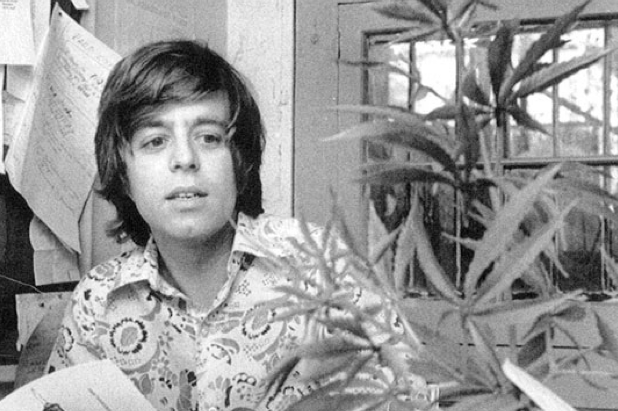NORML Founder Keith Stroup’s 50 Year Mission to Make Marijuana Normal

When Keith Stroup founded the National Organization for the Reform of Marijuana Laws (NORML) in 1970, marijuana legalization was just an idea — and one that the American public wasn’t taking seriously. Now, more than 50 years later, NORML has chapters all around the world and the eventual full legalization of marijuana in the U.S. seems almost inevitable.
Getting to this point was a long slog, Stroup tells me, but it was a process of winning the hearts and minds of America. And with his commanding and intelligent speech — he virtually uses no filler words, which made transcribing our conversation especially easy — and his congenial character, it’s easy to see how he did just that.
The origins of Stroup’s interest in founding a marijuana smoker’s lobby began not with some radical political bent, but rather with a desire to avoid the Vietnam draft and an introduction to public interest law.
“I graduated from Georgetown law school in 1968, and I still had two years of eligibility for the draft,” Stroup says. “I’d actually been required to take my physical, I passed it, and I’d been given a date to report for induction into the army.”
Stroup was getting nervous, and he began investigating ways to evade the draft. Not many were promising.
“I managed to get some assistance from a group of lawyers that are still around called the National Lawyers Guild, and they offered to put me in touch with some psychiatrists in Baltimore who would say that I was gay,” he says.
In the late 1960s, it wasn’t a matter of “Don’t ask, don’t tell.” If you were gay, the government wanted you nowhere near the military. But Stroup’s wife at the time wasn’t too keen on the idea.
What finally allowed Stroup to stay was a job offer from the National Commission on Product Safety. An obscure provision in the draft called the critical skills deferment allowed eligible draftees to stay on the homefront if their job was considered important to the health, safety and welfare of the country.
“[The job] wasn’t actually that important, but it sounded important,” Stroup says. “What was important in the long run, other than giving me a way to dodge the draft, was that I worked closely with consumer advocate Ralph Nader and was introduced to this concept of public interest law.”
Stroup had first smoked as a freshman at Georgetown Law School in 1965 on a ski trip with some friends. Shortly after that, he became a regular marijuana smoker. When the commission came to an end, Stroup was too old to be drafted, and it was the first time he had the chance to think about what he wanted to do.
“I wasn’t interested in product safety, but I was interested in legalizing marijuana,” he says. “I got thrilled with this idea of using your law degree in your legal training to achieve policy change rather than to simply represent a handful of individual clients, so I pulled some friends and colleagues together who had a similar interest and founded NORML in 1970.”
With no funding initially, Stroup wasn’t even paying himself. But his first breakthrough came when he was offered a $5,000 grant from the Playboy Foundation.
“They ended up getting comfortable giving us $100,000 a year in cash and two full-page ads in Playboy, and back then, Playboy had a circulation,” Stroup says.
Playboy also covered when Stroup’s team successfully managed to get 21 year old Jerry Mitchell released on parole after being sentenced to 12 years in prison for selling a third of an ounce of homegrown marijuana.
“We knew we had to get people to forget about the concept of is marijuana good or bad and start thinking about what we are doing by treating people [who use or sell marijuana] as criminals.”
Now, he says, the country is at the point where it can deal with the more refined parts of ending prohibition, like removing marijuana from the Controlled Substances Act and reforming drug-free workplace policies.
“The Gallup Poll in 1969, the year before we founded NORML, asked for the first time how many Americans favor legalizing marijuana,” he says. “Before that, they didn’t even think it was a serious enough question to bother to ask.”
During that first year, 12% of the American public supported legalization. A more recent poll shows that while only about 12% of the public self-identify as regular smokers, 68% support legalization. To the majority of the American public, marijuana doesn’t seem so bad anymore.
“When I look at it now, I think we must have been crazy, considering everything we were up against,” Stroup says. “But that’s what youth is good for: running into impossible goals, and finding out they’re not so impossible after all.”
Stroup says he expects to see more mainstreaming of responsible marijuana smoking. And if anyone knows about that, it’s him.
“I don’t get up in the morning and get stoned because I have work to do,” he says. “But almost every evening, I end the day by pouring a glass of wine and rolling a joint while watching the evening news. How mainstream can you get?”
For more information, visit norml.org and vanorml.org.

